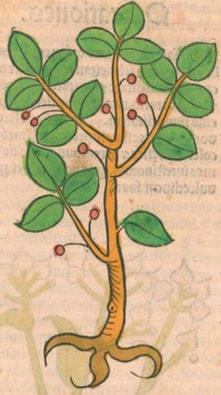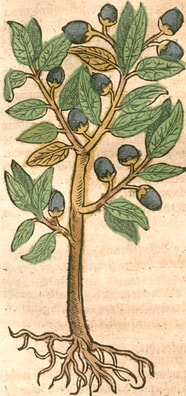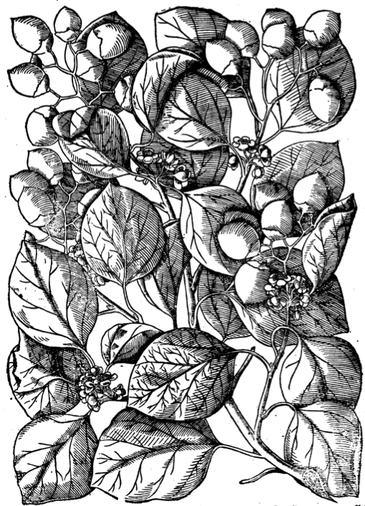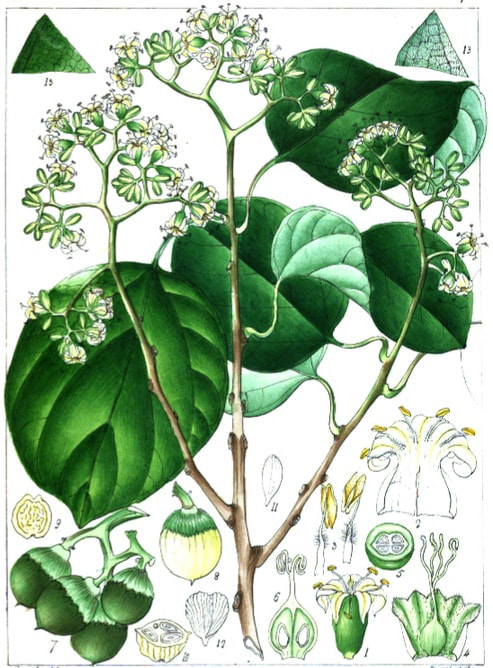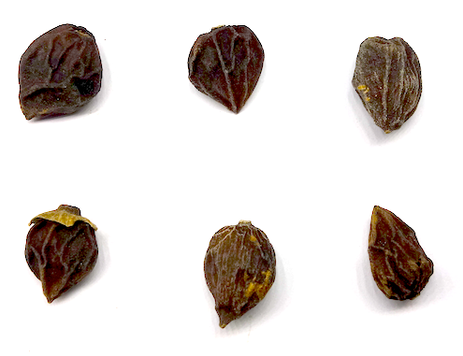Cordia, Sebesten
Sapistan, Sibistan (Unani)
New Kreuterbuch, Matthiolus, 1563
Illustrations Of Indian Botany, Vol. II, Wight, 1850
Sebesten
(Calcutta Unani College, Adam, 2019)
(Calcutta Unani College, Adam, 2019)
Botanical name:
Cordia latifolia (syn. C. dichotoma, C. obliqua, C. myxa)
Parts used:
Fruit
Temperature & Taste:
Neutral, moist, Sweet
"It is somewhat Moderate in temperament". (Avicenna)
Cordia latifolia (syn. C. dichotoma, C. obliqua, C. myxa)
Parts used:
Fruit
Temperature & Taste:
Neutral, moist, Sweet
"It is somewhat Moderate in temperament". (Avicenna)
Uses:
1. Clears Heat:
-Heat disease; Biliousness; Choleric (Bilious) Fevers
-Chronic Fever
-opens obstructions of the Belly, purges gently
-abates acrimony of the Humors
2. Benefits Spleen, Nourishes Blood:
-moderates stronger purgatives
-Insomnia, Irritability, Palpitations from deficient Heart Blood
3. Clears Phlegm, Stops Cough:
-Cough, Bronchitis, Pneumonia, Phthisis
-used chiefly for sharp Catarrh
4. Clears Heat, promotes Urine:
-soothes urinary disorders; sharp or burning urine
SEBESTEN LEAF:
The leaf of Cordia is (rarely) used in TCM as is known as Po Bu Zi Ye. It is cool, dry and Bitter.
1. Moves Qi, Eases Pain
-Epigastric pain and distention
-it moves Qi and eases pain while benefitting the Stomach
-regarded as specially effective for Bone Spurs (Chen & Chen)
2. Clears Phlegm, Stops Cough:
-Cough with Phlegm
Dose:
Decoction: 6–15 fruits
Leaf in Decoction: 5–20 grams (TCM)
Substitute:
1. They are very similar to Jujubes, which may be substituted for them
2. Similar to the Damask Prune in both look and virtue
3. Marshmallow root
Correctives:
1. Jujube
2. Damask Rose
Decoction: 6–15 fruits
Leaf in Decoction: 5–20 grams (TCM)
Substitute:
1. They are very similar to Jujubes, which may be substituted for them
2. Similar to the Damask Prune in both look and virtue
3. Marshmallow root
Correctives:
1. Jujube
2. Damask Rose
Main Combinations:
1. Cough, Bronchitis, Asthma:
i. Sebestens with Raisin, Barley, Date, Licorice, Maidenhair and Hyssop (as in Pectoral Decoction of Augustana)
ii. Heat-type Cough and Asthma, Sebestens with Jujube, Licorice, Marshmallow, Hyssop, Violet (as in Decoction of Hyssop of Zacharia)
2. Heat of the Lungs, Stomach and Liver, Sebestens with Jujube, Tamarind, Violet, Borage, Maidenhair, Hops, Endive (as in Decoction of Fruit and Flowers)
Major Formulas:
Diasebesten
Decoction of Senna
Decoction for Spitting Blood
Decoction Against Strangury and Burning Urine
Cordial Decoction (Florentini)
Decoction of Hyssop (Zacharia)
Pectoral Decoction (Augustana)
Confection for Cold Cough
Restorative Electuary (Antidotus Analeptica) (Nicholas)
Cautions:
Safe. But long term use causes obstructions.
Main Preparations used:
Safe. But long term use causes obstructions.
Main Preparations used:
Click the Tabs above for more information on this Medicine
|
'The fruits of these trees are the Selu, Bahuvara, or Sleshmataka of Sanskrit writers, the Sapistan of the Mahomotans, and the Sebestens of old European works on Materia Medica. C.Myxa is supposed by some to be the [?] of Theophrastus. The natives of India pickle the fruit of both trees. Medicinally the dried fruits valued on account of its mucilaginous nature and demulcent properties; it is much used in coughs and chest affect-ions, also in irritation of the urinary passages; in larger quantities it is given in bilious affections as a laxative. Mahometan writers describe two kinds of Sapistan; the greater (C.
|
obliqua), the pulp of which is separable from the stone, and the lesser (C. Myxa), the pulp of which is adherent. The word Sapistan is an abbreviation of Sagpislan, which means in Persian 'Dog's dugs.' In Arabic they are called Dibk and Mukhitah, in allusion to their glutinous pulp. Both trees are minutely described by Roxburgh. According to Horsfield the bark of C. Myxa is used by the Javanese as a tonic. This tree is the Vidimaram of Rheede, the Fruita d' Entrude of the Portuguese, and the Arbor glutinosa or Kleeverige Boom of Rumphius. (Pharmacographia Indica, Dymock, 1891)
|

